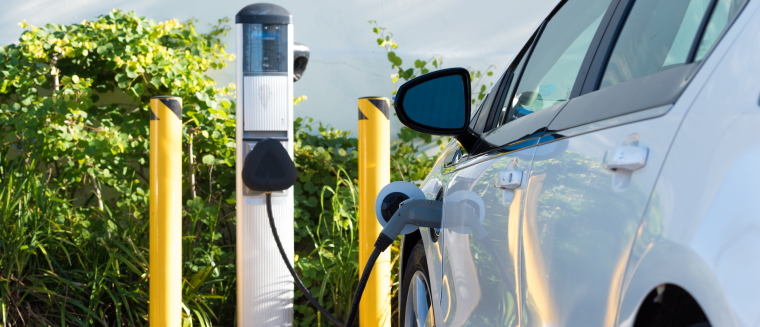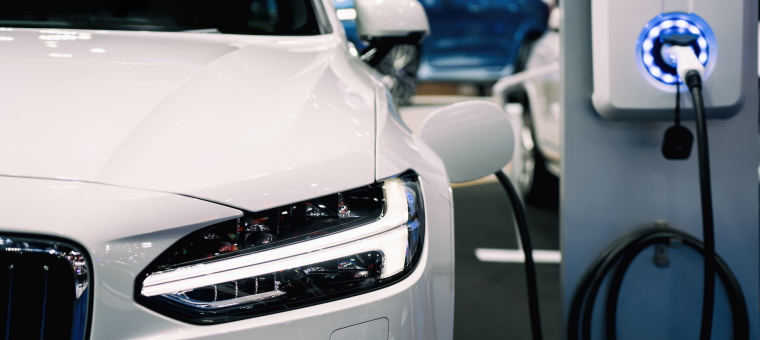Are Electric Cars Actually Cheaper to Run?
Bradley Jando | Wednesday 24th November 2021 5:06pm

The UK is one of Europe’s largest markets for electric vehicles, with nearly 200,000 EVs and 400,000 plug-in hybrids on Britain’s roads. In 2020 alone, electric vehicle sales rose by 186% compared with the year before.
But as more and more people decide to invest in electric cars, we have to ask ourselves - “At what cost?”
While the cost to the environment is decidedly less than regular petrol or diesel vehicles, are the costs to our pockets less too?
Read on to find out just how much it costs to run an electric car, and how hybrid vehicles size up to their fuel-guzzling counterparts.
What are the costs involved in running an electric car?
When it comes to running an electric car, there are just as many expenses as there are when running an ordinary petrol or diesel car, but the cost differs.
Initial Purchase
Up first is the initial purchase of a vehicle, an upfront cost that differs wildly from car to car. As with any vehicle, the costs of purchasing an electric vehicle varies between models.
Electric cars currently cost anywhere between £20,000 all the way up to £140,000. Cheaper models like the Renault ZOE (£21,200) or the Nissan Leaf (£26,690) won’t cost more than £30,000. While some high-end models, like the Tesla Model X can cost between £80,500 and £138,000.
You can find a rundown of the starting prices of some of the UK’s most popular electric models here.
As it stands, though, there are currently plug-in van and plug-in car grants (PiCGs) to subsidise the cost of purchasing electric vehicles. For large plug-in vans, this grant can cover up to £6,000 for purchase, though cars must cost less than £35,000 to enjoy the grant.
Insurance & Servicing
While some electric vehicles are much more expensive than their fuel-guzzling cousins, not all of them cost the earth.
The pricier examples include the Tesla Model 3 which costs an eye-watering 45% more to insure than the similar BMW 5 series.
At the more affordable end of the market, though, electric cars like the Kia E-Niro and the Volkswagen ID.3 don’t actually cost that much more to insure than their petrol counterparts. It’s safe to say, then, that the cost of insuring an electric vehicle varies depending on how expensive said vehicle is, just like regular cars.

Charging at home
Charging your electric vehicle at home is quick and easy, but the upfront costs are quite sizable. Due to the fact that you have to install a home charging point — and these aren’t cheap — the initial costs of home charging may seem overwhelming.
On average, it costs just shy of £1,000 to purchase and install a home charging point — but there are perks. The UK government’s EVHS (Electric Vehicle Homecharge Scheme), for example, helps subsidise these costs by providing a grant of up to 75%, with an upper limit of £500.
Compared to a petrol station, where there may be shortages, wait times, and higher expenses, home charging stations have many advantages, the best of which being the cheapness of a full charge.
Based on data, a 30kWh Nissan Leaf, a full charge costs just £3.64. An average petrol car, on the other hand, costs on average £51.24 to fill up a whole tank. We’ll let you do the maths.
Road Tax
One of the best parts of owning an electric vehicle is its exemption from road tax.
Due to their commitment to the environment, electric cars are exempt from both standard and first-year rates, so EV drivers won’t have to pay road tax throughout the length of their contract.
Regular vehicles, on the other hand, have to pay a certain amount of road tax per year based on their carbon emissions. On the GOV.UK website, you can see what bracket of emissions your vehicle falls under and how much you’ll have to pay — the most of which being £2,245 for over 255g/km of carbon emission.
What are the costs of running a petrol car?
According to a recent study by insurance company LV, the average UK car owner spends over £3,000 per year on just running their car.
Some of the biggest expenses each year include fuel (£961), servicing and repairs (£273), and insurance (£484), but there are many other outgoings. To name just a few: tickets, road tax, parking money, and subscriptions to organisations like the AA and RAC.
So, are electric cars cheaper to run?

So, how do the figures add up? Well, it seems that while the initial costs of purchasing an electric car and accompanying home charging station are much higher than that of a petrol or diesel car, the ongoing costs are but a fraction of the price.
To find out more about electric cars, their charging times, and inner workings, head over to our blog.
In the meantime, if you have any questions about your own vehicle — electric or otherwise— get in touch with the experts at your local Kwik Fit centre.
Any facts, figures and prices shown in our blog articles are correct at time of publication.
Featured Articles
Is it Illegal to Drive With One Headlight?
Saturday 19th July 2025
Wondering if it’s illegal to drive with one headlight? Learn about the safety risks and penalties of illegal blown bulbs and why you should fix them promptly.
Air Con in EVs & Hybrids: Experts Answer Your Questions
Monday 30th June 2025
Does air con drain EV batteries? Can you use the air con while charging an electric car? Find out the answers to these questions & more from Kwik Fit’s experts.
Why Is Your Car Making a Noise? Fixes & Tips
Friday 13th June 2025
When your car starts making unexpected noises, it can certainly be quite disconcerting; it may be nothing to worry about, but here’s what you need to know.









